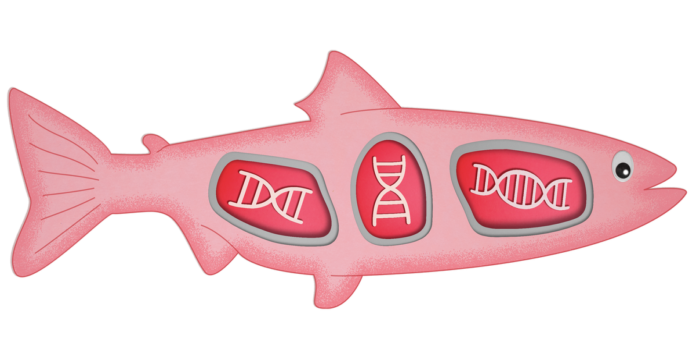Aquabounty’s long (and expensive) trip to the marketplace has been discouraging. Who wants their product to be denounced as a frankenfish by environmental campaigners or be prominently labeled as “bioengineered”? Yet now that the fish has won approval, it may be a “wildly important” signal to others working on genetically engineered animals, says Jack Bobo, a former board member at the company. “All GMO research on animals basically stopped for 20 years,” he says. “There was no reason to do it until something got approved.”
The Aquabounty salmon is transgenic—it has a gene from a different species (a Chinook salmon) pasted in. Now, though, with new gene-editing tools, researchers have better ways to introduce gene changes and a wider menu of possible enhancements. Already, gene editing has led to experimental pigs that resist viral infections and dairy cattle whose spots have been changed from black to gray, to thrive in hot climates.
Today, MIT Technology review is also reporting on a British company called Genus, which is pursuing the largest project yet to genetically modify large farm animals. It’s using newer gene-editing tools to create thousands of pigs immune to some common, and deadly, viruses that affect barnyards.
Animal behavior is on the table too. In 2019, Japanese researchers tried changing a gene in tuna fish to slow them down. Tuna can swim at 40 miles per hour (about seven times as fast as Michael Phelps) and often die in sushi fish farms after collisions with walls.
The path to your dinner table remains a difficult one for these innovations. Activists will criticize them as enabling intensive livestock farming, and it’s true that many genetic innovations were devised to solve problems created by crowding animals together, like disease.
And the US agency that oversees genetically modified food animals, the Food and Drug Administration, is no pushover. The FDA considers alterations to an animal’s genome to be just like a veterinary drug. That means it wants evidence that the modifications do what their makers say and that they’re safe, for the animals and for us.





